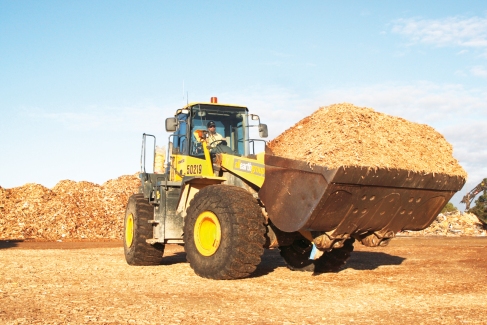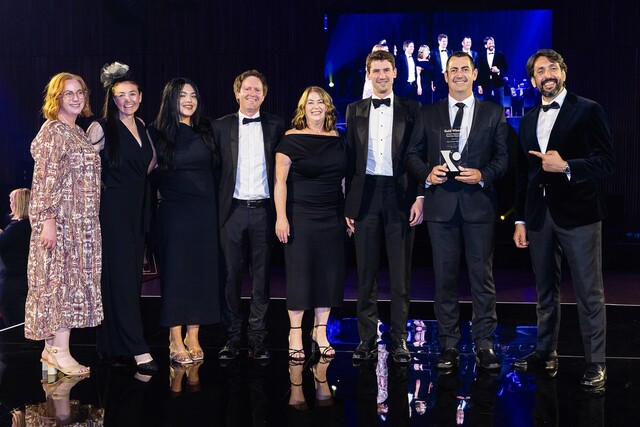The Eastern Metropolitan Regional Council (EMRC) has been announced the winner of two 2008 WA Environment Awards for its work in the areas of resource and waste management and biodiversity conservation.
EMRC works on behalf of six Western Australian Councils – the Town of Bassendean, the Cities of Bayswater, Belmont and Swan, and the Shires of Kalamunda and Mundaring.
Presented in October, the WA Environment Awards are organised by the Department of Environment and Conservation. They are awarded to business, Government, community groups and individuals throughout Western Australia who are setting new benchmarks in environmental care.
EMRC took out the Resource and Waste Management category for its Hazelmere Timber Recycling Centre, Western Australia’s only facility dedicated to the recovery and processing of industrial timber waste.
Since the centre opened in November 2007, over 5,400 tonnes of industrial timber waste has been taken there for recycling – enough to fill over 21 Olympic sized swimming pools. The timber recovered is processed into a recyclable woodchip that is currently used in the manufacture of particleboard, as well as for animal bedding in the poultry industry and as coloured surface mulch.
EMRC Chairman and City of Swan Councillor, David Färdig, said being recognised in these prestigious environmental awards is extremely satisfying.
“It recognises EMRC and its member councils’ commitment to developing sustainable waste management alternatives and diverting reusable products from landfill,” he said.
Councillor Färdig also noted that by diverting timber waste from landfill, EMRC is achieving a number of sustainable outcomes. These include:
- a cost effective disposal option for local
industry – it is estimated that industry can
save $35 per tonne by taking timber to the
timber recycling centre instead of landfill;
based on the 5,400 tonnes already received
at the centre, local industry has saved around
$190,000 on disposal costs - conservation of airspace in Perth’s landfills,
thereby extending the life of current landfills
and the need to construct new landfills - a reduction in greenhouse gas emissions, as
methane generated from timber decomposing
in landfill is over 20 times more potent as a
greenhouse gas than carbon dioxide.
In the Biodiversity Conservation category, the Dieback Working Group, of which EMRC is a partner, was awarded for its achievements in the management of Phytophthora dieback. The group has increased awareness and understanding about dieback in the Perth metropolitan area and the southwest region of Western Australia, encouraged the adoption of dieback prevention and management policies, and encouraged the implementation of management procedures to minimise the spread and impact of the pathogen.
For further information on EMRC or any of the projects that are currently being undertaken visit www.emrc.org.au or www.rgang.org.au

















